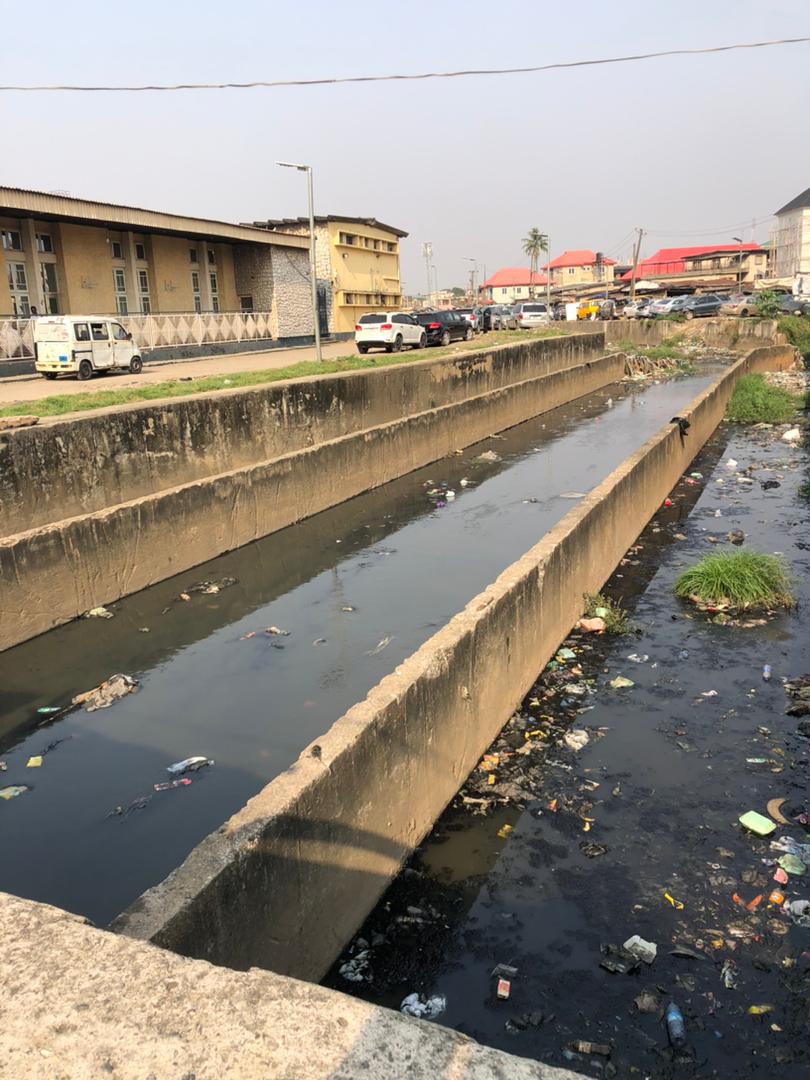Understanding the dynamics of APC victory on June 18

Understanding the dynamics of APC victory on June 18
By Odunayo Ogunmola
The June 18, 2022 governorship election in Ekiti State has come and gone but the poll has been generating various reactions from stakeholders who are still reminiscing on what transpired on that day.
The people of Ekiti have made their decision in electing the candidate of the All Progressives Congress (APC), Mr. Biodun Abayomi Oyebanji as the next Governor to take over from the incumbent, Dr. John Kayode Fayemi.
The Governor-elect polled 187, 057 votes to beat the Social Democratic Party (SDP) candidate, Chief Segun Oni who received 82, 211 votes to come second while the flag bearer of the People’s Democratic Party (PDP), Chief Bisi Kolawole, got 67, 457 votes to place third.
The electorate chose the APC and its flag bearer in an overwhelming fashion in a field that paraded fifteen other parties and their candidates who had the opportunity to canvass for votes ahead of the poll.
Few hours after the close of voting, the electoral umpire, the Independent National Electoral Commission (INEC) duly declared Oyebanji winner having fulfilled the requirements of the law to become the Governor-elect.
While the APC is still basking in the euphoria of its victory after a hard-fought battle, other political parties that lost are still licking the wounds of defeat and struggling to come to terms with the loss suffered.
A major post-election talking point is the allegation of vote buying which some individuals, political parties and interest groups are latching on to take the gloss off the victory achieved by the broom party, the APC on the electoral field.
Vote buying, if proven beyond the reasonable doubt, is an offence as stipulated by the nation’s electoral law and it was reported that some arrests were made by security agencies including the Economic and Financial Crimes Commission (EFCC) during the Ekiti poll.
It is better to allow the security agencies and the courts of law to do their job as those arrested would have the constitutional opportunity to defend themselves against the allegations levelled against them. Their arrest notwithstanding, they still enjoy the presumption of innocence until they are proven guilty in line with Section 36 of the Constitution of the Federal Republic of Nigeria.
But some detractors won’t back down in accusing the APC of snatching victory through alleged financial inducement of voters. Is it possible for the APC to buy all voters on election day? Don’t we have men and women of integrity who still believe that voting at election is their civic duty which they don’t need to be bribed before they perform it? Does any political party has the financial wherewithal to share money at all the 2,445 polling booths at the same time? More questions begging for answers you will say.
When people, especially members of the opposition party in the state, are trying to impugn on the integrity of the election result with the allegation of vote buying, does that mean that they themselves sold their votes to the APC? It is trite in law that he who asserts must prove, anybody holding on to the claim that the Ekiti election victory was secured through vote buying must be ready to provide concrete and incontrovertible evidence before he or she is believed!
The truth of the matter is that in spite of the propaganda of the opposition, all indices pointed to an APC victory in the June 18 election owing to the strength of the ruling party, its campaign strategies, the weaknesses of the opposition which the APC capitalized upon, among other reasons.
The party which came second in the election, the Social Democratic Party (SDP), used to be a dormant party that was cobbled together by aggrieved politicians who deluded themselves that they could win the governorship election in less than four months without solid structures in the grassroots.
What the SDP and its members failed to understand was that structures and deployment of the right strategies win elections and not playing on the emotions of the electorate and resort to propaganda which it regaled Ekiti people with in the days ahead of the election.
For the party which came third, the People’s Democratic Party (PDP), the last governorship election was a disaster waiting to happen as the party was fractured almost beyond redemption with barely few days to the poll. The party had so many enemy within and there was no person as the rallying point to provide the needed leadership to galvanize it to give APC a good fight.
It is on record that some Ekiti PDP members worked against their party at the polls in a bid to get back at some leaders whom they believe were the problems of the party and profiting from the self-inflicted crisis. One may be tempted to ask that did APC buy the votes of the PDP members as well?
The PDP, the main opposition party, became an orphan that was abandoned by its father-figures and the national leadership. Its presidential candidate travelled for leisure when he supposed to come to Ekiti to lead its clamour for votes. Where were the PDP governors, National Working Committee members, National Assembly members and other party organs? It was a very bad PR for the party not to hold a mega rally ahead of the Ekiti poll.
For a party that became a pariah to its leaders, hoping to win the Ekiti governorship election would amount to the highest level of delusion of the grandeur. It got the result it deserved at the election: a distant third. Losing the governorship election back-to-back was indeed bitter pill to swallow for the umbrella party.
What were those factors that tilted the pendulum of victory in favour of the APC? The party appeared well prepared for the last governorship election and gave its all to the project. Although the party has its own internal issues, it was able to put its house in order ahead of the “judgment day” of June 18.
Many have forgotten that the APC has a vote bank of over 100,000 votes as attested to during its January 27 governorship primary election in which Oyebanji scored 101, 703. It was a direct mode of primary in which all registered party members had opportunity of voting for aspirants of their choice.
Other APC aspirants who contested with Oyebanji garnered 3,280 votes at the APC governorship primary in which all party members queued up behind the posters of the aspirants they wanted as the flag bearer. It was a process many party members recorded with their phones with the aspirants knowing the results with the sight of the queues.
With the vote bank of over 100,000, made possible by the membership registration exercise carried out last year, all APC needed to do was to garner more votes to smile home with the governorship trophy. The direct primary was a masterstroke by party leaders and it produced the most popular person as the flag bearer.
Also, many of the policies embarked upon by the APC government since assumption of office in October 2018 were instrumental to the decision of the electorate to keep the party in power beyond 2022. The endorsement was a referendum from the voters that the party has done well to merit being elected for the second time on the bounce.
Communities and individuals who are beneficiaries of the creation of new Local Council Development Areas (LCDAs) saw the election as a payback time for the APC. Local government workers who have enjoyed career progression would want the status quo to remain and would not vote for any party that will scrap the LCDAs in the name of politics will be ready to keep APC in power with their votes. APC don’t need to coerce them with money before they vote for the party.
Despite the lean financial situation of the state, it is on record that the APC government spread the tentacles of development to more towns and villages and never restricted its efforts to Ado Ekiti and Ikere Ekiti when the PDP was in power. The APC government did this to give more communities the sense of belonging. Election time was an opportunity for the people of these communities to show their gratitude.
Communities that have been touched with one project or the other including intrastate roads, roads to farmsteads, renovation of schools, hospitals, health centres, construction of royal palaces, civic centres, agro cargo airport, Knowledge Zone, neighbourhoods given new transformers don’t need to be induced with money before voting for the APC which identified with them in their time of need. Projects inaugurated during the first, second and third year anniversaries of the Fayemi Administration in office are there for all to see.
Apart from the projects so far commissioned, many are still ongoing and nearing completion awaiting their commissioning as Governor Fayemi prepares to exit office in October including township roads in major towns, Independent Power Project in Ado Ekiti, Ekiti Elders’ Resort, Traditional Rulers’ Chambers, just to mention a few.
The overwhelming victory in Ikere Ekiti was not a surprise because the APC government upgraded the old College of Education to a university, the Bamidele Olumilua University of Education, Science and Technology, Ikere Ekiti (BOUESTI) among the benefits the change in status had brought to workers in the institution and people of the town.
Ekiti people knew the neglect suffered by the institution in the past when the opposition party was in power including an attempt to scrap the college which led to many crises. The upgrade has done to the careers of workers a lot of good and they waited for the last election to appreciate the APC for what God used its government to do for them.
Thousands of Ekiti indigenes who secured employment under the APC government don’t need anybody to induce them with money before voting for the party at the last election. Core civil servants, teachers, non-teaching staff, local government staff, Amotekun Corps officers and State Fire Service officers who were employed within the last three years were among the people who would not want a change of government to another party. Having the APC in power for more years was a means to securing their future.
Thousands of women given economic empowerment under the Obirin Kete Cooperative Scheme and thousands of the aged people benefiting from a special food support scheme, Ounje Arugbo, both packaged by the First Lady, Erelu Bisi Fayemi, did not need to be induced with money to vote for the APC. They knew that retaining the party in power was an obligation from them for the largesse to continue.
Besides all these gestures and other ones too numerous to mention, the APC campaigned vigorously for the votes of the electorate using strategies that were novel in the Ekiti political space. With the ban on open campaign lifted in March, the party never waited till the election came by to start reaching out to the people reminding them of why it should be entrusted with another four years in office.
Its flag bearer who is now Governor-elect (Oyebanji) criss-crossed the state not less than four times selling his development agenda, his pedigree and his experience in governance to the electorate in the grassroots which was complemented by various campaign structures and independent canvassers put in place by the party to market his candidacy.
The party did more of house-house, street-to-street, neighbourhood-to-neighbourhood, hamlet-to-hamlet, settlement-to-settlement campaigns that was embarked upon by its APC canvassers. Besides, the party and its candidate had interface with interest groups and associations like labour unions, civil servants, teachers, local government workers, artisans pensioners, community associations, women groups, among others to woo them.
The APC also went to woo Ekiti State indigenes resident in neighbouring Ondo and Osun States whose names were registered in their towns and villages back home in Ekiti showcasing the achievements of the APC government and the pedigree of Oyebanji. The two states have a large number of Ekiti indigenes resident therein and they form a large voting bloc which the APC tapped into. No other party did that.
The broom party also took its campaign to the doorsteps of ethnic nationalities resident in Ekiti like the Igbos, the Hausas, the Urhobos, the Idomas, the Igedes, the Ebiras, the Tivs, among others. Apart from having the leading lights of these ethnic groups on appointment in the Fayemi Administration, the party went to their marketplaces and farmsteads to sell the Oyebanji candidacy to them.
The role played by the First Lady, Erelu Fayemi, as the head of the Women Campaign Council in ensuring victory for the APC is also worthy of mention. Apart from hosting many women groups to seek their support for the party, she also spearheaded a special campaign outreach to major markets in which she introduced the wife of the Governor-elect, Dr. Olayemi Oyebanji, as a worthy successor.
In the campaign which took them to main markets and neighbourhood markets in all the 16 local government areas, they canvassed support for the APC, carried out voter education and patronized the market women by buying items from them. The women campaign was spiced by colourful roadshows across the state with Erelu Fayemi and Dr. Oyebanji mixing with the locals. The strategy worked wonders for the APC. One may one to ask: where were the wives of the candidates of the SDP and the PDP during the electioneering period?
You may want to ask: where were the smaller opposition parties before INEC blew the whistle for the Ekiti governorship election? They only existed on paper but had no structures and people on ground to show their seriousness in giving the ruling party the run for its money. It is very sure that with the declaration of result, many of them would go to sleep again only to wake up just few months to the 2026 governorship election.
The truth is that the APC worked hard for the victory it achieved at the poll, it appeared as the party that was the hungriest for victory out of the parties that participated in the last election and the result would not be a surprise to those who diligently followed the electioneering campaign.
The APC had won the election long before June 18 and attempting to downplay the victory with allegations of vote buying can be likened to a lazy farmer’s excuse on why his farm was overgrown with weeds. APC deserved its landslide victory at the last governorship election in Ekiti let the opposition and other detractors look for another excuse.




